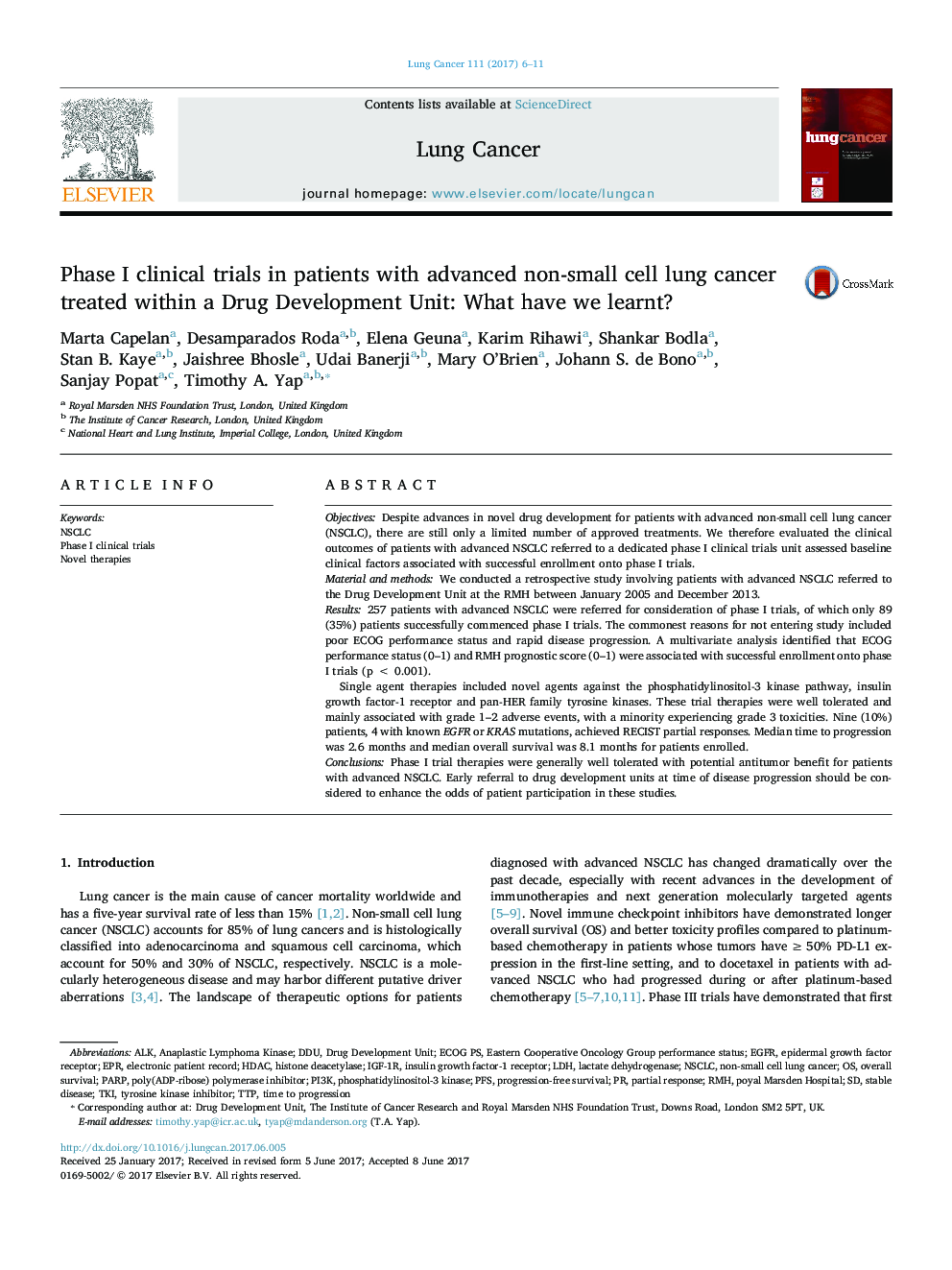| کد مقاله | کد نشریه | سال انتشار | مقاله انگلیسی | نسخه تمام متن |
|---|---|---|---|---|
| 5528322 | 1547956 | 2017 | 6 صفحه PDF | دانلود رایگان |

- Poor performance status and rapid disease progression were the main reasons for not participating in clinical trials in a dedicated phase I unit.
- Early referral to dedicated phase I trial units should be considered to enhance the odds of patient suitability for such experimental studies.
- Novel therapies assessed within phase I clinical trials were generally well tolerated in our series of patients with advanced NSCLC.
- Objective RECIST responses to rationally matched targeted therapies were observed in molecularly selected patients with advanced NSCLC.
- RECIST responses and TTP were comparable to those achieved with single agent chemotherapy regimens and were associated with fewer adverse events
ObjectivesDespite advances in novel drug development for patients with advanced non-small cell lung cancer (NSCLC), there are still only a limited number of approved treatments. We therefore evaluated the clinical outcomes of patients with advanced NSCLC referred to a dedicated phase I clinical trials unit assessed baseline clinical factors associated with successful enrollment onto phase I trials.Material and methodsWe conducted a retrospective study involving patients with advanced NSCLC referred to the Drug Development Unit at the RMH between January 2005 and December 2013.Results257 patients with advanced NSCLC were referred for consideration of phase I trials, of which only 89 (35%) patients successfully commenced phase I trials. The commonest reasons for not entering study included poor ECOG performance status and rapid disease progression. A multivariate analysis identified that ECOG performance status (0-1) and RMH prognostic score (0-1) were associated with successful enrollment onto phase I trials (p < 0.001).Single agent therapies included novel agents against the phosphatidylinositol-3 kinase pathway, insulin growth factor-1 receptor and pan-HER family tyrosine kinases. These trial therapies were well tolerated and mainly associated with grade 1-2 adverse events, with a minority experiencing grade 3 toxicities. Nine (10%) patients, 4 with known EGFR or KRAS mutations, achieved RECIST partial responses. Median time to progression was 2.6 months and median overall survival was 8.1 months for patients enrolled.ConclusionsPhase I trial therapies were generally well tolerated with potential antitumor benefit for patients with advanced NSCLC. Early referral to drug development units at time of disease progression should be considered to enhance the odds of patient participation in these studies.
154
Journal: Lung Cancer - Volume 111, September 2017, Pages 6-11